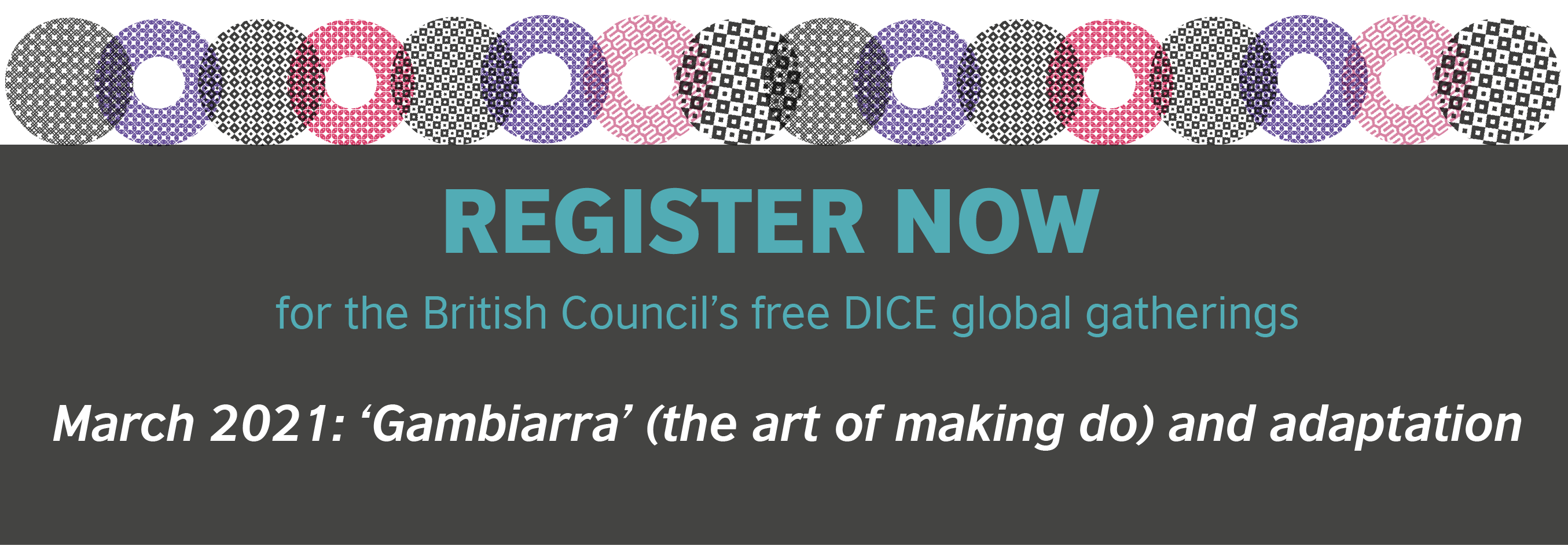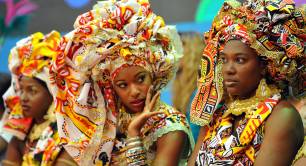Make money or change the world? A hip hop DJ and his partners equip entrepreneurs to do both
Taxis that do pick-ups where others won't go, organic veg for the poorest people and a clothes-sharing co-operative are just some of the start-ups that have emerged on the outskirts of Brazil's São Paulo thanks to a consortium of business support specialists.

Marcelo Rocha, who started out as a disc jockey and is more commonly known as DJ Bola, explains that social and creative entrepreneurship has emerged as a response to difficult conditions in the periphery of Brazil’s big cities, among those living in what he calls the bottom end of the social pyramid.
In 1999 – 20 years ago – he was involved in setting up an organisation called A Banca, which emerged in Jardim Angela, a troubled neighbourhood on the outskirts of São Paulo, the country’s largest city.
“In the 1990s Jardim Angela was the most violent place on earth, according to United Nations statistics,” he says. It was, and still is, home to some of the least affluent neighbourhoods in a country which has significant inequalities of income and wealth. The idea behind the new organisation was to use music, hip hop culture, popular education and technology to promote social inclusion and entrepreneurship.
A Banca seeks to empower local communities and to support start-up businesses. “We looked to train local people, to help realise their dreams of breaking barriers and having a positive social and environmental impact, and to link them up with people trying to change things in other peripheries,” DJ Bola says.
What we are doing is like creating micro-revolutions at the base of the social pyramid
While outside organisations can and do come into the community to offer help, and that is always welcome, DJ Bola insists that the real focus of A Banca is, above all, to support and empower local communities so that they can be protagonists and leaders in the search to find solutions to their own problems.
“What we are doing is like creating micro-revolutions at the base of the social pyramid,” he adds.
Three other organisations have joined A Banca to co-design and deliver a British Council DICE-funded project to encourage this process. Artemisia is a non-profit accelerator, set up in 2004, to help and promote social impact businesses. It says that since its creation it has accelerated over 180 businesses and trained more than 500 creative social entrepreneurs. Its website boldly addresses its beneficiaries with an upbeat message: “Between making money and changing the world – choose both.”
Another partner is the Entrepreneurship and New Business Centre (CENN) of the Fundação Getúlio Vargas (FGV). FGV is one of Brazil’s best-known think-tanks and business schools. Like Artemisia, CENN was set up in 2004 with a mandate to study and promote social entrepreneurship in Brazil.
Boosting start-ups
Between them, A Banca, Artemisia, and FGV-CENN have created a joint accelerator programme for business start-ups in the São Paulo urban periphery, known as Aceleradora de Negócios de Impacto da Periferia (ANIP).
For two years ANIP has been offering an accelerator programme for local business start-ups. In the current cycle, a total of 177 social enterprises applied to take part in the programme. Thirty were chosen to participate in face-to-face meetings and workshops, and from this process a total of ten were selected to benefit from the full programme which includes training, mentoring, and a seed capital contribution worth BRL20,000 (£3,750). Over the full two years of the programme that means that between them, 20 start-ups have received a total of BRL400,000 (£75,000).
A wide range of start-ups are involved. To be selected they needed to be within the São Paulo periphery, to be already up and running, to be based within low income communities, and to have a demonstrable social or environmental purpose or impact.
Jaubra, one of the companies to enter the acceleration programme, offers a ride-hailing service with a difference: it will send taxis to pick you up or drop you off in neighbourhoods considered too insecure or poor to be served by other taxi companies or online platforms. The company has 50 local drivers on its books and charges highly competitive rates, as well as offering ridesharing by passengers to keep transport as affordable as possible.
Another company, Enjoy, organises weekly organic vegetable and foodstuff deliveries to shanty town dwellers. HOTD (an acronym for Have Options to Dress) operates a cooperative-style virtual wardrobe where members can borrow up to 12 different clothing ensembles a month. Kitanda das Minas, in the state of Minas Gerais, offers local black and immigrant women a chance to work offering Afro-Brazilian food to the employees of various companies. LiteraRua is a collective of writers and cultural producers inspired by comic books and rap music which seeks to publish and support local authors.
The fourth organisation involved in the ANIP project is UK-based Global Urban Design (GUD), a start-up created by Jacqueline Bleicher, an architect, author and specialist in community-based design with over 15 years professional experience. In August 2019, Jacqueline was one of the speakers at an ANIP Business Forum, explaining the experience of setting up her own start-up as well as well as advising participants on business skills, the creative process and explaining the spread of social enterprises in the UK and around the world. She was impressed by the way the Forum promoted an open and inclusive discussion not only between local São Paulo entrepreneurs, but also between them and those from other parts of the country and abroad.
- Read more about DJ Bola's story in our feature by Maria Lannes, one of our Brazilian Young Storymakers
Jacqueline adds: “Perhaps what also made me attractive as a panellist is that I am a black woman. There were a number of black women on the international panel acting as role models and mentors. It is very important, if you are attending that kind of an event, to see people who look like you who have been able to accomplish and achieve.”
Is the project working? Given the high attrition rate among all new businesses (not just social enterprises) it is probably too early to reach any hard and fast conclusions. But initial indications are very positive. DJ Bola points put that all 20 social enterprises that have gone through the accelerator programme are still in business.
Jacqueline says: “There was a lot of buzz, excitement and real positive energy there, and also a hunger for knowledge.”
The British Council and the DICE Collaborators (including the organisations featured in this article) invite you to join them in a series of conversations about reducing inequalities, collaborating across borders and oceans, and operating impact-focused enterprises at a time of profound change. These free, monthly live events are co-hosted by impact-focused organisations in Brazil, Egypt, Indonesia, Pakistan and South Africa and their partners in the UK, and draw on their experience of collaborating across borders to address challenges such as youth unemployment, environmental catastrophe, disability rights, and gender inequality in local communities. Find out more and register here.
The DICE Series tells the stories of collaborations which brought together enterprise development experts from the UK with specialists working in five emerging economies – Brazil, Egypt, Indonesia, Pakistan and South Africa – during 2019-20 with the aim of addressing entrenched issues of economic and social exclusion. Read more about the British Council’s DICE programme here.
Header photo courtesy A Banca





